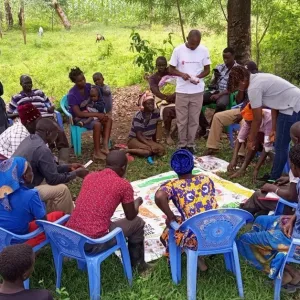News
Agri-Nutrition Learning with the Happy Family Board Game
It is said that adults learn best by practice. Practical learning coupled with real life experiences whilst playing resonates well with learners across all age groups and has long lasting impact. The Happy Family Boardgame is a game developed for farming households. It is meant to help couples improve their joint decision-making, planning, farming practices and nutrition knowledge to

Agri-Nutrition Learning with the Happy Family Board Game
It is said that adults learn best by practice. Practical learning coupled with real life experiences whilst playing resonates well with learners across all age groups and has long lasting impact.
The Happy Family Boardgame is a game developed for farming households. It is meant to help couples improve their joint decision-making, planning, farming practices and nutrition knowledge to maximize on the resources available to them hence become a happy family. The game was developed in the Education and Training for Sustainable Agriculture and Nutrition in East Africa (EaTSANE) project.
The project is part of the LEAP Agricultural program implemented in Teso South Sub-County, Kenya, and Kapchorwa District in Uganda.

